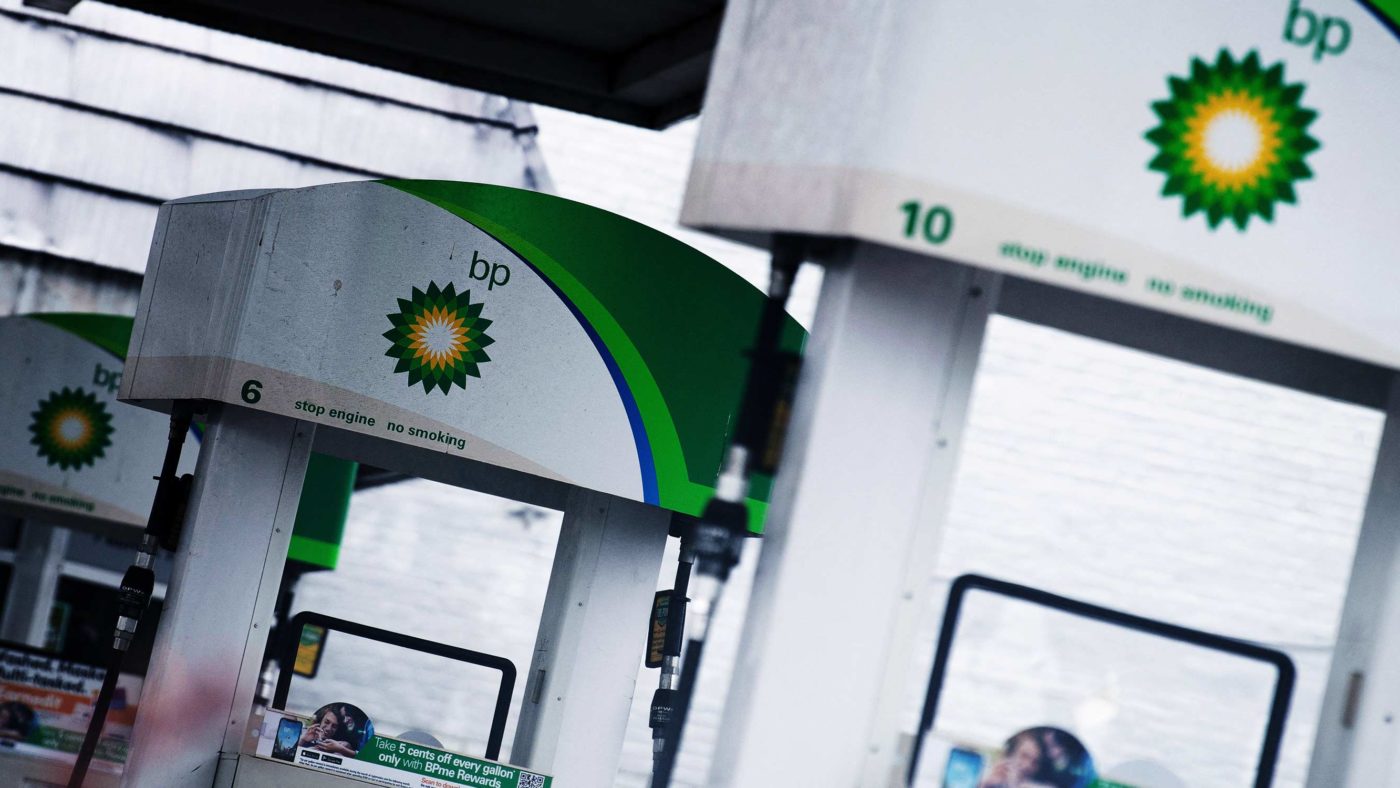BP’s first quarter results have predictably fuelled more calls for a ‘one-off’ windfall tax on the profits of North Sea oil and gas companies. But the numbers actually illustrate some of the arguments against rather neatly.
For a start, BP reported a huge loss of $20.4bn (£16.3 bn) in the first quarter, due to the writedown of its stake in the Russian oil giant Rosneft. This could end up costing the company as much as $24bn, meaning that the company (and its shareholders) could be left worse off as a result of the Ukraine crisis.
Underlying profits were higher in the first quarter, at $6.3bn (£5bn), boosted by the surge in global energy prices. However, these profits should be seen in the context of what happened in 2020, when the company made an even bigger loss of $6.7bn in the second quarter.
The energy sector is a cyclical business where firms already pay more tax (at 40%) when profits rise. Put another way, profits ebb and flow with the economic cycle and with global energy prices – as do the amounts of tax paid. If companies didn’t expect to make more profits in the good years, they wouldn’t bother at all.
Admittedly, it does seem unfair that any company could make bumper profits, even indirectly, from a tragedy such as the war in Ukraine, or from Covid. Truly ‘one-off’ windfall taxes can also be a relatively efficient way of raising more revenue without distorting behaviour in the future. This is mainly because they are effectively an additional tax on past investment rather than on the profits from decisions yet to be taken.
Labour has also suggested that the additional revenues from raising North Sea corporation tax by 10 percentage points, for one year, could help to fund a £600 reduction in energy bills for the most vulnerable.
However, what is or is not ‘fair’ is inevitably subjective. The language used by supporters of a windfall tax is often emotive and not helpful when trying to design a rational and simple tax system.
Even if you accept that an increase in profits caused by the fallout from a war should be treated differently from an increase caused by any other shock, how do you decide how much of the increase is due to the war and how much would have happened anyway?
What’s more, if profits do rise, companies will already be paying more in tax. The Office for Budget Responsibility estimated in March that North Sea receipts could jump from £3.1bn in 2021-22 to £7.8bn in 2022-23, if oil and gas prices remained near their post-invasion highs.
Some also argue that it is somehow ‘fairer’ to avoid taxing individuals by raising taxes on companies instead. However, companies are only legal entities and cannot bear the economic burden of taxes themselves. This burden is always passed on to real people, not all of whom will be wealthy shareholders.
The efficiency advantages of windfall taxes are overplayed, too. In reality, these sorts of ad hoc, arbitrary and retrospective tax changes are likely to add to business uncertainty and undermine investment.
Supporters of a windfall tax argue that the extra profits were ‘unexpected’ and therefore that investment plans cannot have depended on them. The fact that some energy companies are buying back shares or paying bigger dividends also suggests that they have more than enough cash for the investment opportunities available to them.
But the objections to windfall taxes are broader than this. If companies in any sector come to believe that profits might be taxed at a higher rate in better years, their projected returns from investment will be lower, and so there will be less of it.
This risk might be minimised if firms can be persuaded that a windfall tax is indeed just a ‘one-off’. But many advocates of a windfall tax have undermined their own case here, by citing precedents or by suggesting that these additional taxes should become a permanent feature of the tax system.
Some have even suggested that the idea should be extended to other businesses, such as online retailers, which happen to have done well during the pandemic.
The ‘slippery slope’ argument is often overused, and yet it must apply in this case. Why should any company go the extra mile during a crisis if they fear they might be whacked with a punitive tax? Or why should any internationally mobile company chose to invest in a country where the tax regime is so fickle?
Finally, the argument that the revenues from a windfall tax could be used to cut energy bills is a red herring. While I agree there is a strong case for providing more support to the most vulnerable households, this could be financed in many other (and better) ways.
It rarely makes sense to link any type of spending to one particular source of revenue (‘hypothecation’). This surely applies to the energy market now too, where prices are so volatile and the tax base is uncertain. But if politicians really want to go down this route, why not just say that they will cut bills using the additional tax that North Sea oil and gas companies will already be paying?
In short, I get why many people question why anyone should be able to profit, even indirectly, from the suffering in Ukraine, or from the cost of living crisis in the UK. Nonetheless, windfall taxes are not the answer.
Click here to subscribe to our daily briefing – the best pieces from CapX and across the web.
CapX depends on the generosity of its readers. If you value what we do, please consider making a donation.


